The Rise and Fall of ISIS
9/11 was the event that inspired a generation of Americans to sign up and defend their homeland from a threat that was not exactly clear cut. Most people have never even heard of Osama bin Laden or Al-Qaeda up until that moment. Fast forward a couple of years later and another non-state threat emerged – only this time they strived for a caliphate and were a lot more pervasive in their levels of violence and sheer brutality. When ISIS fell, a simple question for which there is no straightforward answer remained: what is next for counterterrorism operations?
There is an old saying about counterterrorism: it is like mowing the grass in your front lawn. It needs to be a consistent process even though sometimes you do not know exactly where the enemy is. The Islamic State of Iraq and Syria (ISIS) started out as Al-Qaeda in Iraq in 2004, led by Abu Musab al Zarqawi. Yet, due to the large quantity of US forces in Iraq, they were not able to make any significant headway. It also did not help that the name “Al-Qaeda in Iraq” did not stick with the local population. So, al Zarqawi needed to reassess his plans.
The Islamic State sounds so grand, epic in scale – and to an extent, it was. At the height of its existence, ISIS held around the third of Syria and around forty per cent of Iraq. Today, their operational structure is crippled, cyber operations in the English language are virtually non-existent. But the ideology is still present, which is why people still fear (especially in Europe) the possibility of future attacks. Attacks in the future will occur, mostly in Western Europe, but these will not be highly organized and coordinated events.
Instead, these will be lone-wolf attacks by self-radicalized individuals which will attribute and dedicate their acts of violence to various terrorist organizations. We have seen that occur in the London and Germany stabbings, in France on Bastille Day, when a truck ran into innocent bystanders, and many times more. It is a direct result of the inability of various terror groups, including ISIS, to use mass combat power against the Western world. Lone wolf attacks are much harder to predict and prevent because there is no chatter on the “wires” indicating a possible location or a time of the event. There are no weapons or weapon materials to be tracked by intelligence services which could lead them to the perpetrators. Individuals are only limited by their imagination and they use any weapon of opportunity they can find.
The last well-crafted and coordinated attack on US service members was in December of 2019 by Al-Qaeda in the Arabian Peninsula, led by a Saudi national. Yet, despite this “success”, Al-Qaeda is on its last legs, trying to survive.
The future of counterterrorism operations
The future of counterterrorism operations lies in better cooperation among Western nation-states. Some of these efforts can currently be seen in West Africa: French troops are taking lead in the West African counterterrorism operations, while the British are providing operational support.
Providing pressure on various terror organizations across the MENA region in order to prevent them from setting up sanctuaries, as well as terminating the heads of the organizations, will remain the foundation of future counterterrorism activities. Currently, COVID-19 caused problems for terrorists because almost no one is travelling. However, also it gives them time to prepare for the future. Despite COVID-19, European states need to amplify their domestic security activities due to the large influx of illegal migrants whose main goal is reaching the EU. Identifying these people is extremely complex because they may provide false information about themselves. For example, some say they are Pakistani nationals when in fact they are Afghan. Certain fighters from Syria have been deported from Serbia and Bosnia and Herzegovina, all thanks to the active communication and cooperation between intelligence agencies from the Balkans, the United States and Europe.
Another way the counterterrorism agencies need to evolve in the future is to look at nation-states supporting terrorist organizations. In my opinion, counterterrorism activities will revert back to the activities of the 70s and 80s: preventing proxy forces from causing damage to critical infrastructure in the Western world. Some of those activities are currently being done in the cyber realm where Iranian IRGC backed hackers are trying to gain access to the US power grid.
To conclude, the resurgence of ISIS in the borders which they occupied at the height of their power is highly unlikely. They do not have the capabilities to organize, nor the financial resources to plan and execute complex operations in the Middle East or abroad. The future of terrorist attacks lies in lone wolf attacks since they do not require financial support to carry out nor can they be easily predicted. The future of counterterrorism operations lies in preventing and fighting against various proxy forces across the MENA region as well as in the cyberspace with the assistance of allies. Transatlantic cooperation in the years to come will become even more important, as US adversaries start using unconventional methods to sow discord in the Western spheres of influence.
Sources
Wilson Center (2016): The Rise, Spread and Fall of Islamic State, https://www.wilsoncenter.org/article/timeline-the-rise-spread-and-fall-the-islamic-state, accessed 10.10.2020

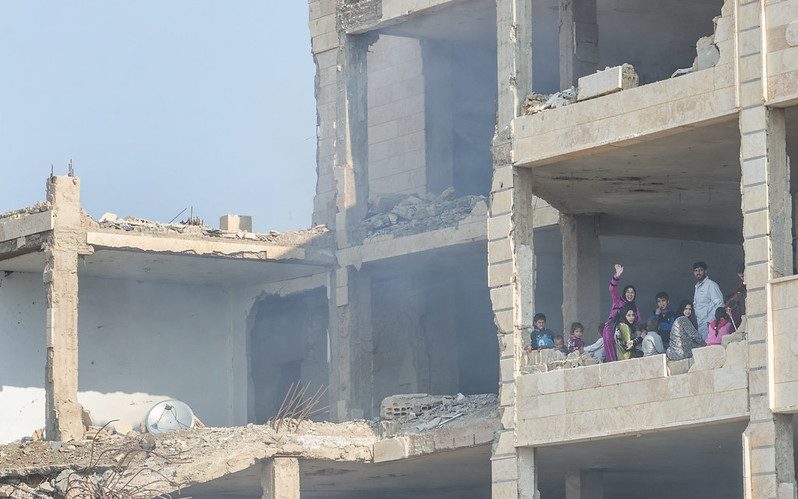
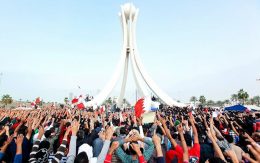
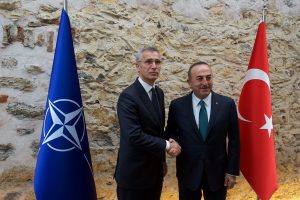
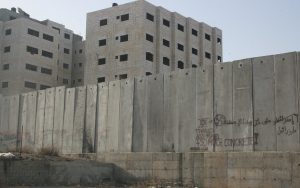
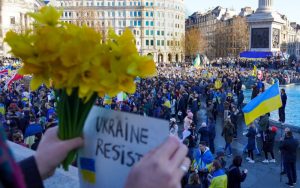
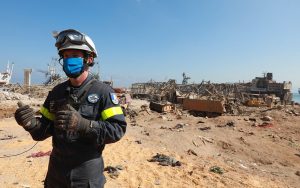

Be First to Comment